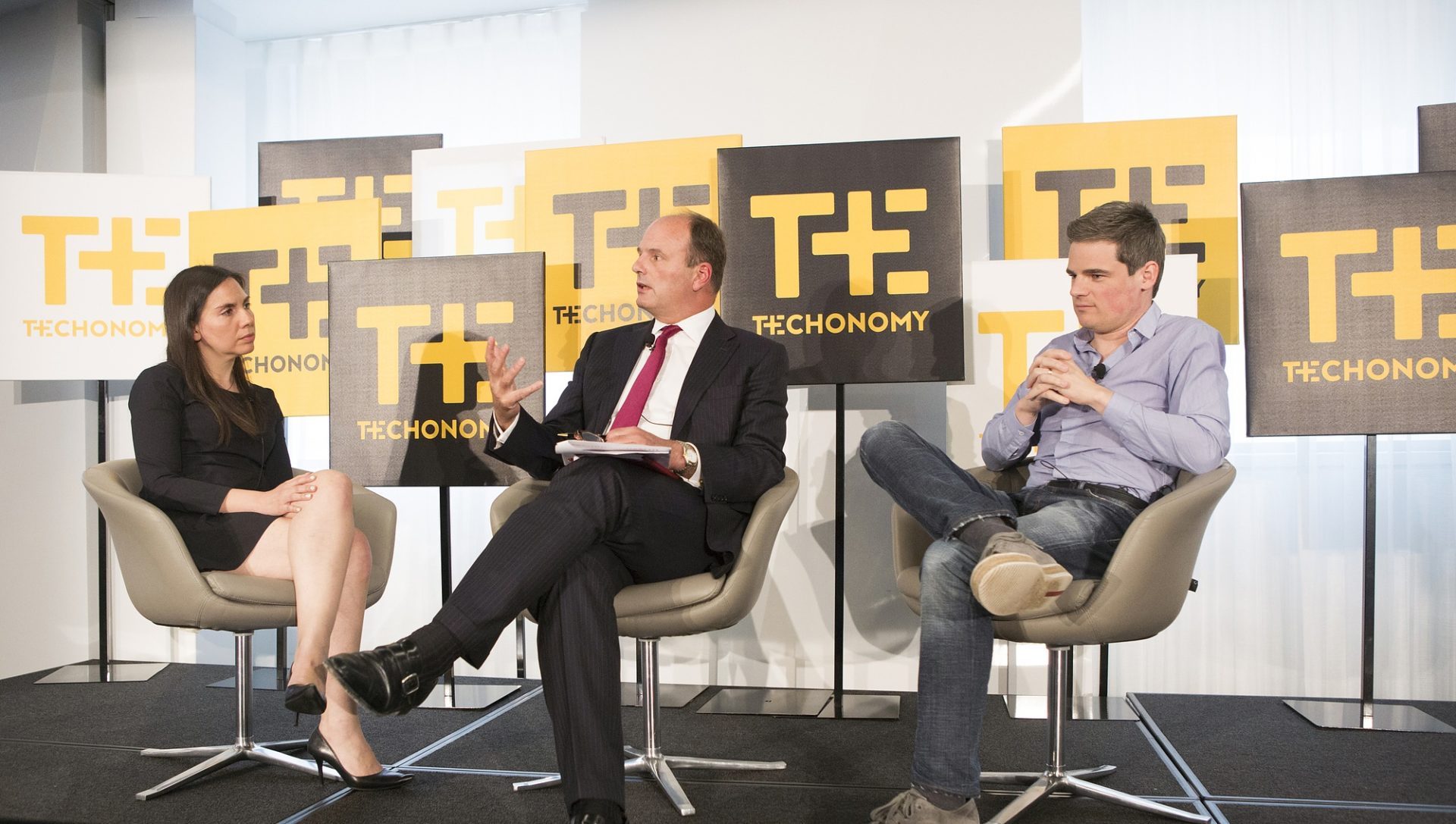
In a Techonomy Health panel on how data can drive better healthcare, experts said improving the U.S. system demands new technologies as well as establishing more trust between all the players in the medical system. Mario Schlosser from Oscar, which aims to be a disruptive innovator in insurance, joined Andrew Thompson of Proteus Digital Health, which works to improve medication results by adding a much-needed layer of data––from the pills themselves. Daniela Hernandez of the Wall Street Journal moderated. (See the full video and transcript here.)
Both speakers bemoaned the limited and fragmented state of data in healthcare now, with Schlosser noting that most of today’s data flows are merely about transactions—treatment codes and billing information. Thompson agreed, adding that the lack of data forces the system to focus on treating illness rather than enhancing wellness. “We don’t have a healthcare system. We have a sickcare system,” he said.
But the discussion wasn’t all about downside: the speakers, both CEOs of their organizations, noted a laundry list of ways the system could be made better. Thompson said the current model of waiting until people get sick and turn up at hospitals must be replaced with personalized health services delivered to each person wherever they are, as clinical decision-making is augmented by software and databases about illnesses and individual patient histories. That model, he said, is a much better fit for a system where the vast majority of treatment is for chronic disease. Much of that treatment is already happening at the community level instead of in major hospitals. “The whole world is shifting from behavioral models that were about buildings, people, and products into models that are about software, services, and mobile devices,” Thompson said. “This phenomenon is incredibly important, particularly for people who’ve been left behind.”
For his part, Schlosser said that improving care and reducing costs will be possible with more data about a patient’s situation. He said Oscar monitors hospital and doctor visits in real time and uses that information to ensure patients are getting optimal access and that they know what to do after the visit. He also said payment systems must change so payment is for the value and improvement received. Today’s fee-for-service model, he explained, does not offer the appropriate incentives to health providers. “Unless we are able to build some networks … where data gets more easily interchanged, where everyone makes more money, frankly, when members get healthier,” Schlosser said, “I think none of the stuff we’re talking about … will ever really take hold.”
Innovation is sorely lacking, according to Thompson. “It’s really important to understand that innovation in just about every sector … means better and cheaper every year. Only in healthcare have we managed to define [innovation] as a bit better and a lot more expensive,” he said. “That has to end.” His own company, Proteus, has an innovative solution: attach a transmitter to a pill so after you swallow it, data about its effectiveness flows to your smartphone and ultimately to your doctors.
Thompson said a key challenge to innovation is a lack of trust. Innovation in other areas is marked by what Thompson called “high-trust networks,” or groups of people driven to innovate with the collective understanding that failure is an essential and acceptable part of that process. He pointed to Silicon Valley as an example of a large network where innovators can stumble but still trust their peers will give them a second chance; this safety net accelerates innovation by allowing people to take bigger risks. In healthcare, though, getting new products or services to patients means running the gauntlet of “low-trust networks”—groups like the FDA, insurance companies, and physicians, all focused on rejecting the possibility of failure. “How do we earn and build trust?” Thompson asked. “Because that’s the currency that will enable those networks to adopt our products.”
At Techonomy Health: U.S. System Needs Way More Data
On a Techonomy Health panel on how data can drive healthcare, experts said improving the U.S. system demands lots of new technology and the data to fuel it, none of which is coming fast enough. And it requires innovators–and health institutions–willing to see ideas fail in order to find the greatest ones.
















